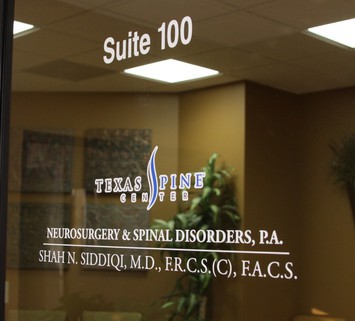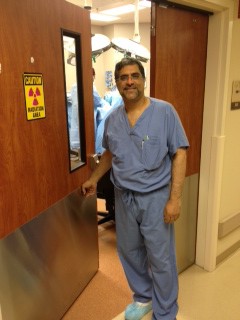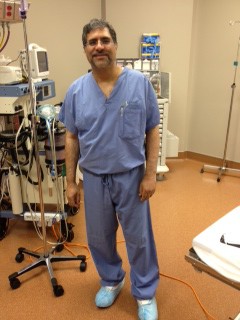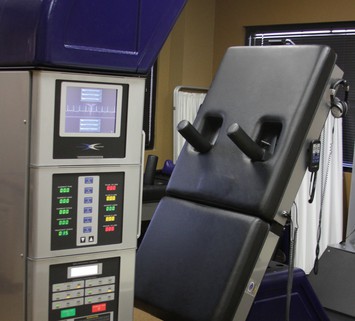A common question that patients considering spine surgery ask themselves is, who would be better: a neurosurgeon or an orthopedic spine surgeon? While neurosurgeons have been considered the primary physicians for spine surgery, spinal operations have evolved throughout the years, giving both neurosurgeons and orthopedic surgeons the ability to specialize in this surgical procedure. However, if both surgeons are equally qualified, is there a difference between the two? Yes, there is, and while they are both capable of performing successful spinal surgeries, understanding the key differences between a neurosurgeon vs. an orthopedic surgeon can help you decide which option is better for you.
Neurosurgeons
Neurosurgeons specialize in diagnosing and treating diseases and/or disorders that affect the nervous system, which includes the brain, spinal column, spinal cord, and peripheral nerves. Some neurosurgeons specialize exclusively in brain surgery, others in spine surgery, and some divide their surgical procedures between the brain and the spine. A neurosurgeon’s scope of study revolves around the central and peripheral nervous systems and the proper surgical treatment of the conditions that affect them.
Orthopedic Spine Surgeons:
Orthopedic surgeons, on the other hand, have a much narrower focus, specializing specifically with the spine, back, and neck. Patients are under the direct supervision of the orthopedic spine surgeon throughout the entire progress—from preventative care, to diagnosis, to treatment, and through rehabilitation. After treatment, orthopedic spine surgeons follow the progress of the patient through physical therapy until they are fully rehabilitated. Orthopedists generally specialize in the treatment and diagnosis of almost all bone and joint disorders, including arthritis, sports injuries, spinal disorders, total joint replacements, bone tumors, trauma, hand injuries, and deformities.
How Are They Similar?
The key similarity between neurosurgeons and orthopedic spine surgeons is that they can both specialize in spine surgery and are skilled in caring for disc degenerations, disc herniations, spinal stenosis, slippage & fractures of the spine, scoliosis, and spinal bone tumors.
How Are They Different?
It’s important to understand the sub-specialty of each surgeon because you may find that one can be more qualified than the other to treat your condition depending on your personal situation.
As previously mentioned, neurosurgeons specialize in the diagnosis and surgical treatment of central and peripheral nervous system disorders. In contrast, orthopedic spine surgeons specialize in shoulder, elbow, hand, wrist, hip, knee, foot, ankle, and spinal treatment. In the past, orthopedic surgeons performed more surgeries on spinal deformities while neurosurgeons performed intradural surgeries. Most orthopedic surgeons today operate less than neurosurgeons; however, they typically perform hip and knee replacement surgeries and largely serve the senior community and athletes.
Dr. Shah Siddiqi—Texas Spine Center
At Texas Spine Center, we are dedicated to helping patients improve chronic back pain and other related conditions. Our neurosurgeon, Dr. Shah Siddiqi, treats spinal conditions and provides on-site spinal pain management for simple and complex spinal conditions. Through a comprehensive range of non-surgical treatments for back and neck pain, disc diseases, and other spinal conditions, many patients do not need surgery to treat their spinal injuries. Dr. Siddiqi is one of the few neurosurgeons who provides microsurgical techniques with minimally invasive spine surgery options which allow for an early recovery.
Are you considering spinal treatment? Texas Spine Center is ready to get you on the road to recovery. During your initial visit, our staff will review your medical history and ask questions about your symptoms. After reviewing your medical history, you will be given a series of treatment options to determine which option is best for your personal situation.



